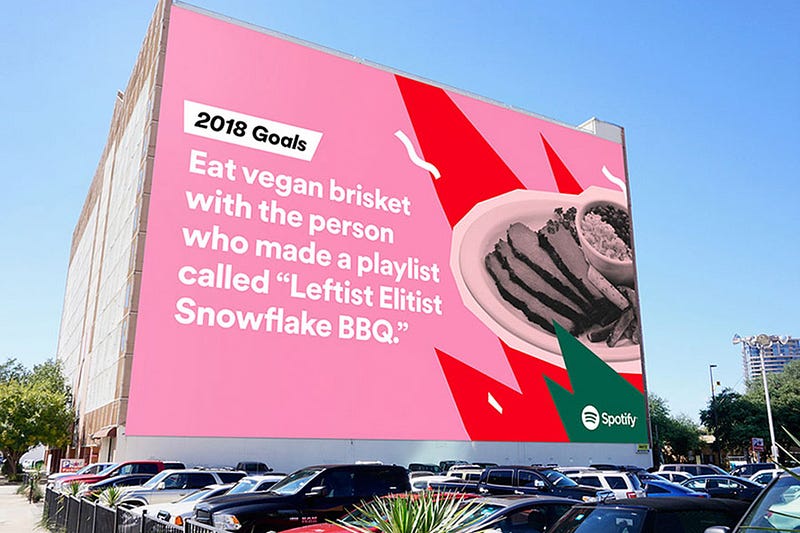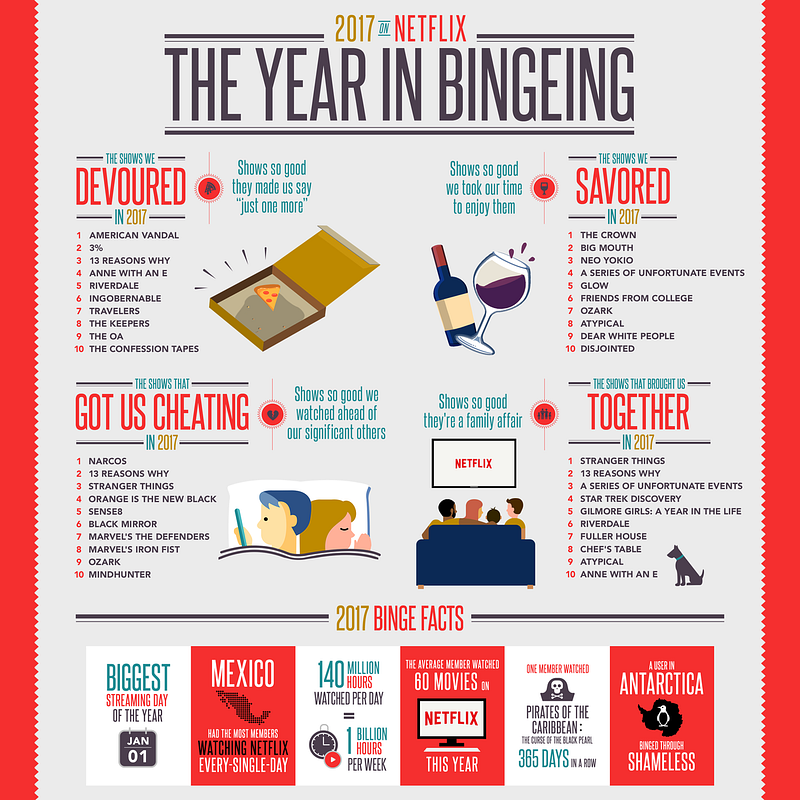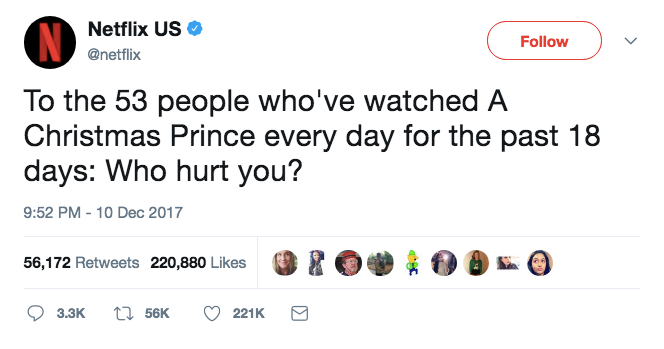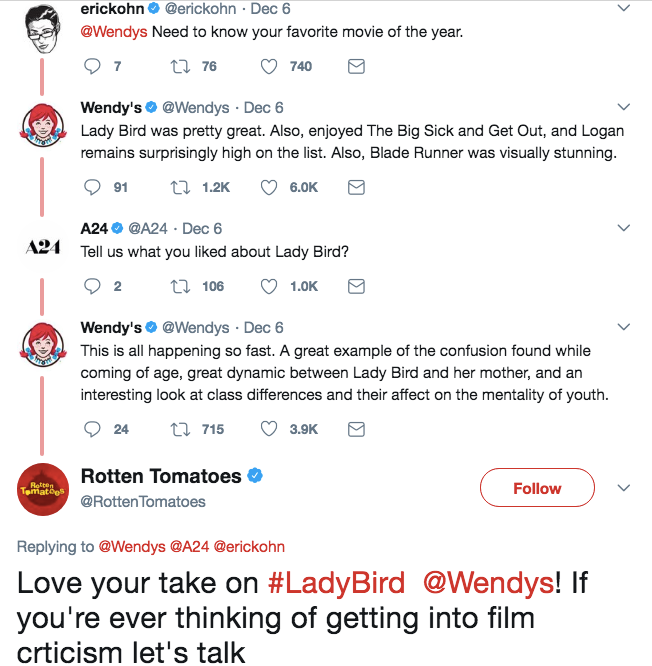 Spotify
SpotifyWe were once responsible for describing our own tastes, which meant we sometimes lied about them. At the very least, we had strategically selective memories. I could tell you which Pitchfork bands I’d been loving lately — conveniently omitting how many times I’d listened to the original recording of Jesus Christ Superstar in the past week. I might’ve talked up a sleeper indie film only playing in a handful of arthouse theaters, mentioning how the director had become a favorite of mine, without admitting that I’d seen Blade II twice. It used to be up to friends and family to call out our trashier interests.
But streaming services have put an end to that. Each year-end now brings massive number dumps from the likes of Spotify and Netflix, as if to remind us exactly how much personal information they can hoover up through users’ relationship to entertainment. Perversely enough — and to a strange acclaim in the world of creative marketing — these two digital giants have used their extensive findings to roast their outlying customers.
In 2016, Spotify made a splash with an ad campaign that drew on the inexplicable (or all-too-telling) activity of individuals who use the app. “Dear person who made a playlist called ‘One Night Stand With Jeb Bush Like He’s a Bond Girl in a European Casino’: We have so many questions,” read one billboard. Another, gracing the side of Manhattan’s Port Authority, where millions must have read it: “Dear person who played ‘Sorry’ 42 times on Valentine’s Day: What did you do?” Who knows if the anonymously burned parties ever saw the signs, but if so, they probably started investing in a vinyl collection.

Netflix followed suit this week, shaming streamers for a host of embarrassing behaviors. The company reported that someone in the U.K. had watched Bee Movie — the 2007 animated film starring Jerry Seinfeld, which has aged into canonical meme status — a whopping 357 times this year. Someone else watched the first Pirates of the Caribbean movie every single day. Netflix even somehow came up with a list of TV shows that “got us cheating,” i.e., watching ahead of our significant others. And over on Twitter, they mocked a small demographic clearly obsessed with the rom-com A Christmas Prince.

While the tweet appeared to have the intended effect — high engagement and people chuckling about the savage own — it also drew criticism from people creeped out by the close monitoring, as well as the implication that Netflix employees had made a sport of cherry-picking data.
While Spotify corporate has some creative distance from the musicians accessible on the platform, Netflix made and distributed this evidently shitty Christmas movie. Who are they to interrogate its fans? Shouldn’t they be happy to release a hit? And are we about to see McDonald’s put “a certain U.S. president” on blast for inhaling 600 Big Macs this year? It’s hard to think of a precedent for trolling-as-branding. True, the Twitter account for Wendy’s has gotten snarky now and then — but usually at rival restaurants or people who dissed them first. It’s totally different to slam the people who turn your profit. Then again, it squares perfectly with brands’ attempts to come off as just another witty social media friend. At this point, they’re even having conversations among themselves.

This tone reflects an understanding, in the social media departments of various media properties and food franchises, etc., that traditional promotional language is scorned by people who are online to goof around, get news, or share passions. Denny’s was one of the first to recognize this, amassing a following by adopting the surrealist style of Weird Twitter. But the flip side to this chill vibe is the casual put-down — the sort of ribbing that’s expected and fine between real friends but not altogether appropriate from Big Brother.
On balance, maybe we’d rather not have the receipts of our internet diet read back to us every December, and no website makes that clearer than Facebook. Whether it’s asking you to celebrate a “friendaversary” with someone you haven’t spoken to since a falling out or bumping a somber status on the death of a loved one via the “On This Day” feature, the social network can’t stop rehashing all the stuff we’d rather forget. (Facebook’s 2017 in review videos have been more depressing than usual, highlighting painful posts regarding sexual harassment, mass shootings and natural disasters.)
Aside from the idiocy of an app surfacing touchy old content it thinks will inspire nostalgia — or quirky stats that serve to humiliate unnamed losers — we’ve never needed tech to help us take stock of a year. The whole point of a memory is that the experiences with true impact will overshadow the granular noise of a daily routine. Things are supposed to slip through the cracks; we are not designed to retain it all, just as we are not meant to process the quantity and scale of human chaos that floods our brains when we log on in the morning. By guessing who we are through our patterns of consumption, Netflix and Spotify instead affirm that nobody is defined by what they binge or their guilty pleasures. It is no more truthful an assessment than the self-conscious one we offer when trying to impress a crush who asks what we’re into.
Given the choice, I’ll always prefer that slight dishonesty to the cruelty of an algorithm.
Have you tried this new app BMX Bike Race Mod Apk : this is really great.
ReplyDelete